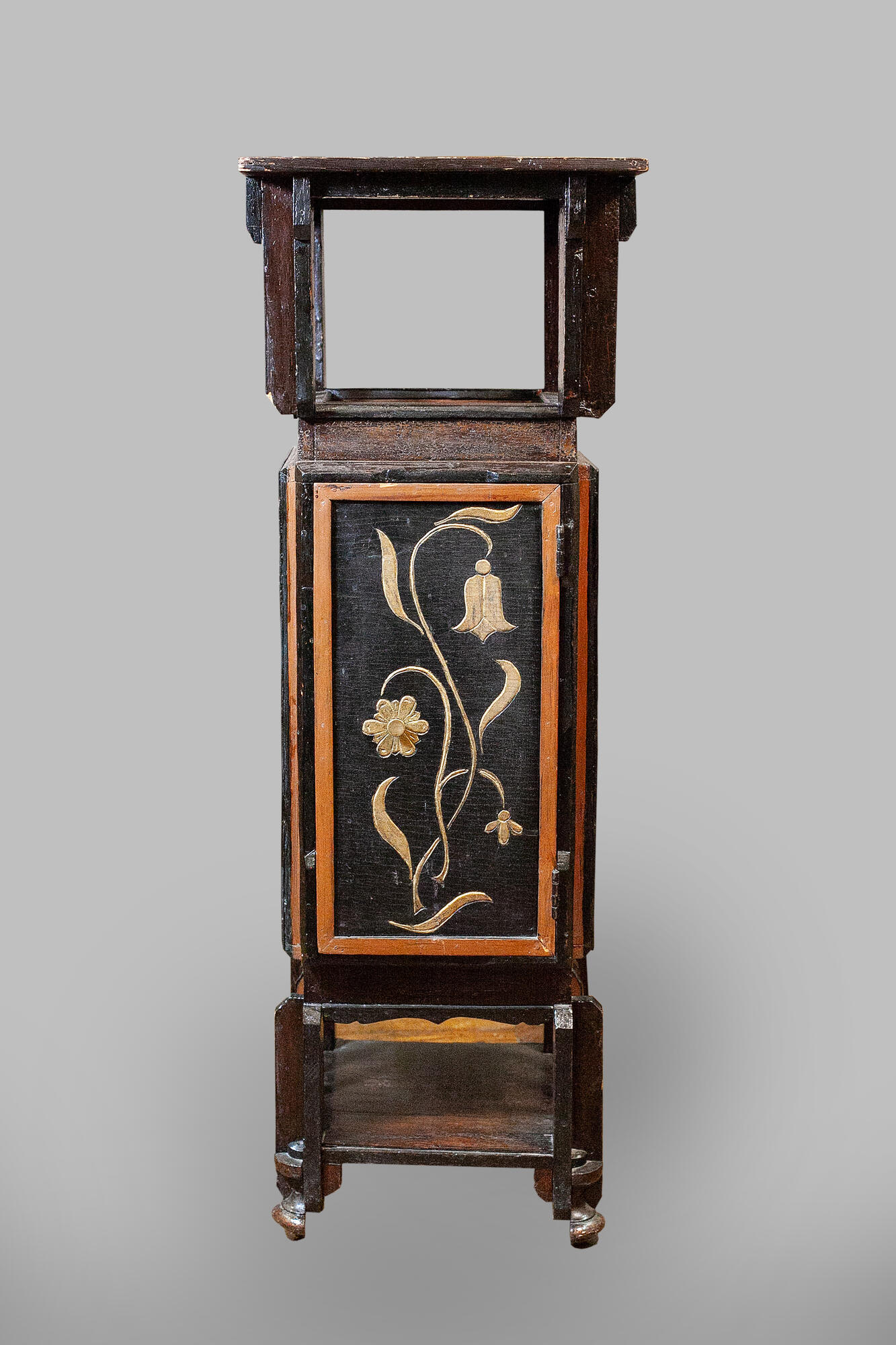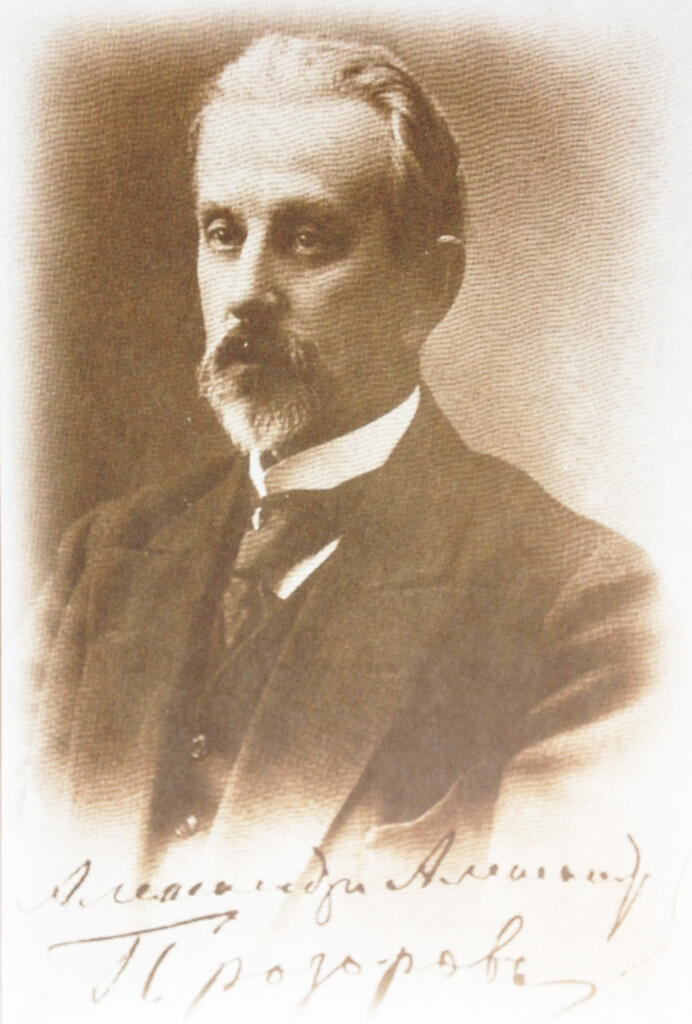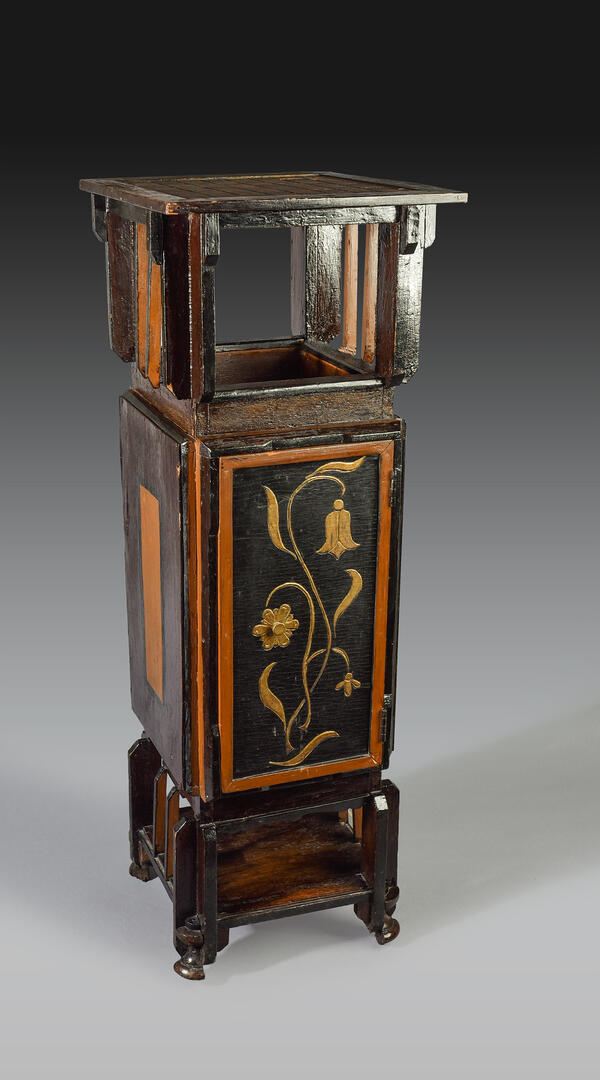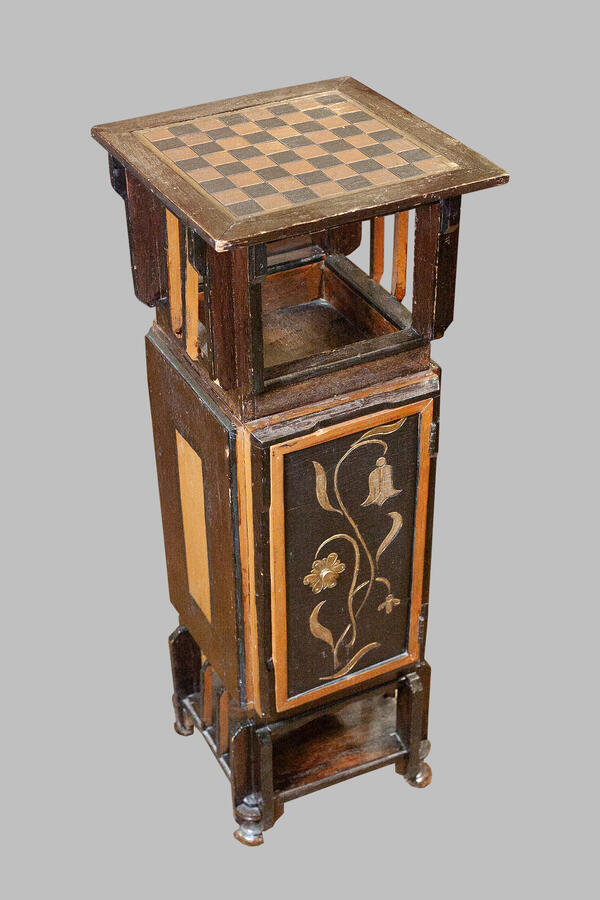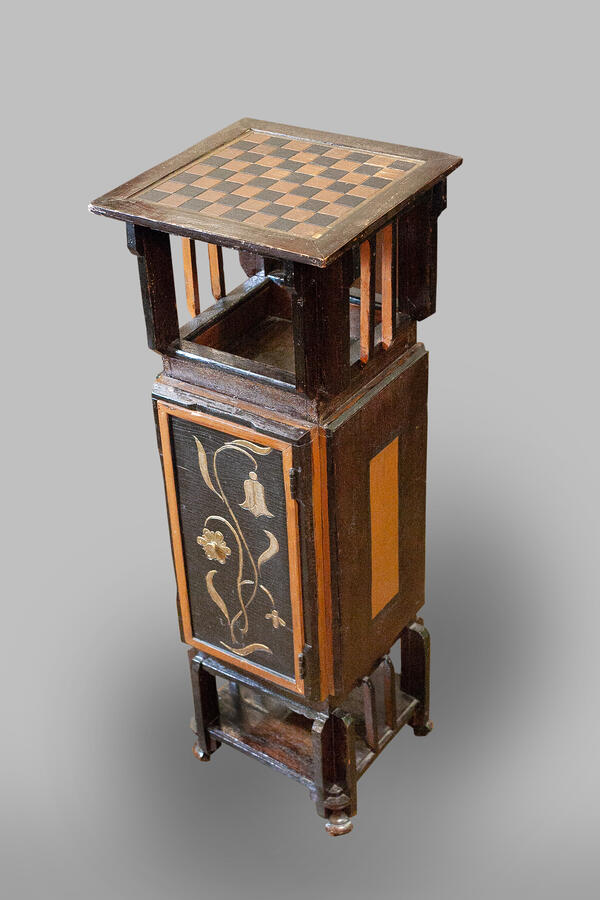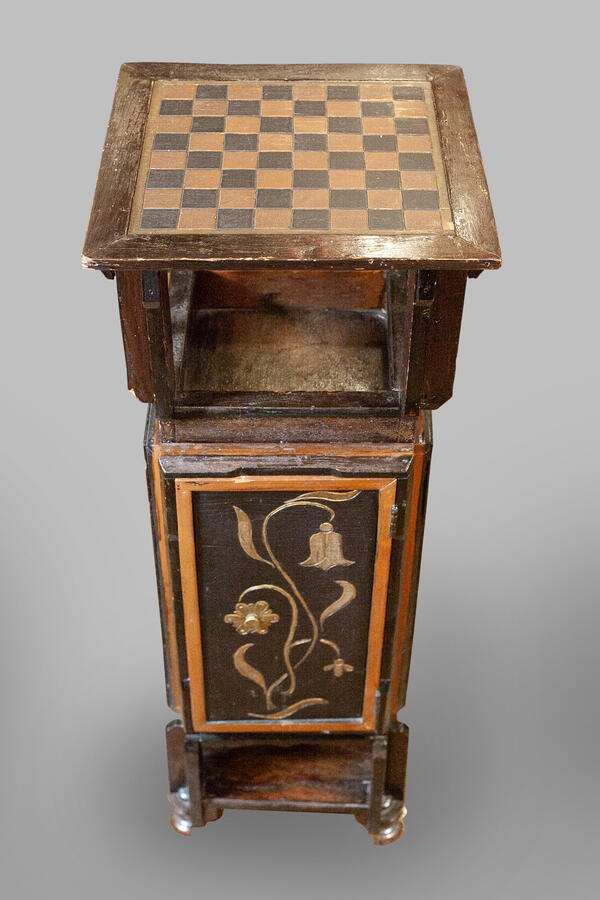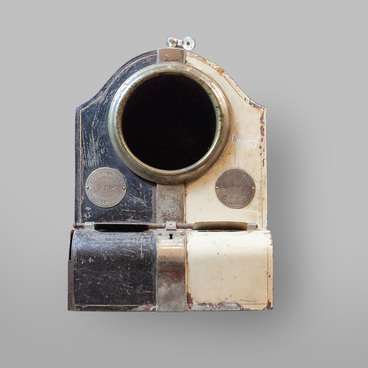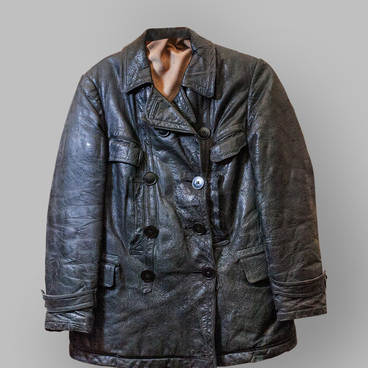A chess table is an exhibit that represents the social and cultural life of Vyatka at the turn of the 20th century. This is a small inlaid table on two low carved legs with a chessboard on top. The door on the front side of the table is decorated with a bronze floral pattern carved on a black background. Behind the door, there is a compartment with partitions. Such a table might have decorated the interior of the Vyatka Public Assembly.
The first club was founded in Vyatka in 1850. It was most active in the winter, while in the summer, high school students mostly participated in social evenings, which consisted exclusively of dances. On Tuesdays, family nights were held at the club, where there was also dancing. On Wednesdays, there were musical nights, called “Club Wednesdays”.
In Vyatka, the club was called the Public Assembly. There was everything that one could wish for, including a dance hall, billiards, a room for playing chess and cards, a stage for performances, etc. Most members of the club were representatives of the local intelligentsia and merchants, as well as members of the petite bourgeoisie.
The Public Assembly, later known as the Assembly of the Nobility, was a very popular place. One of the regulars was Alexander Alexandrovich Prozorov (1831–1927) — a well-educated man, a lawyer, and a theatergoer. He dedicated most of his spare time to theater, participated in organizing various amateur performances, and invited famous artists to Vyatka. In the last years of his life, Prozorov worked at the Alexander Herzen Library to which he donated his valuable collection of over 2,000 publications.
As an employee of the Alexander Herzen Library, Prozorov started writing memoirs titled “The Town of Vyatka and its Residents”. Several generations of local historians have enjoyed reading his memoirs. Prozorov wrote that he always tried to bring joy to people and in every possible way contribute to the prosperity of his town. This truly noble idea of serving people and his town runs through the entire narrative of Alexander Prozorov, in which he focused on the daily life of individual citizens — townsfolk, officials, and governors — each with their own habits, peculiarities, and ways of thinking.
The first club was founded in Vyatka in 1850. It was most active in the winter, while in the summer, high school students mostly participated in social evenings, which consisted exclusively of dances. On Tuesdays, family nights were held at the club, where there was also dancing. On Wednesdays, there were musical nights, called “Club Wednesdays”.
In Vyatka, the club was called the Public Assembly. There was everything that one could wish for, including a dance hall, billiards, a room for playing chess and cards, a stage for performances, etc. Most members of the club were representatives of the local intelligentsia and merchants, as well as members of the petite bourgeoisie.
The Public Assembly, later known as the Assembly of the Nobility, was a very popular place. One of the regulars was Alexander Alexandrovich Prozorov (1831–1927) — a well-educated man, a lawyer, and a theatergoer. He dedicated most of his spare time to theater, participated in organizing various amateur performances, and invited famous artists to Vyatka. In the last years of his life, Prozorov worked at the Alexander Herzen Library to which he donated his valuable collection of over 2,000 publications.
As an employee of the Alexander Herzen Library, Prozorov started writing memoirs titled “The Town of Vyatka and its Residents”. Several generations of local historians have enjoyed reading his memoirs. Prozorov wrote that he always tried to bring joy to people and in every possible way contribute to the prosperity of his town. This truly noble idea of serving people and his town runs through the entire narrative of Alexander Prozorov, in which he focused on the daily life of individual citizens — townsfolk, officials, and governors — each with their own habits, peculiarities, and ways of thinking.
